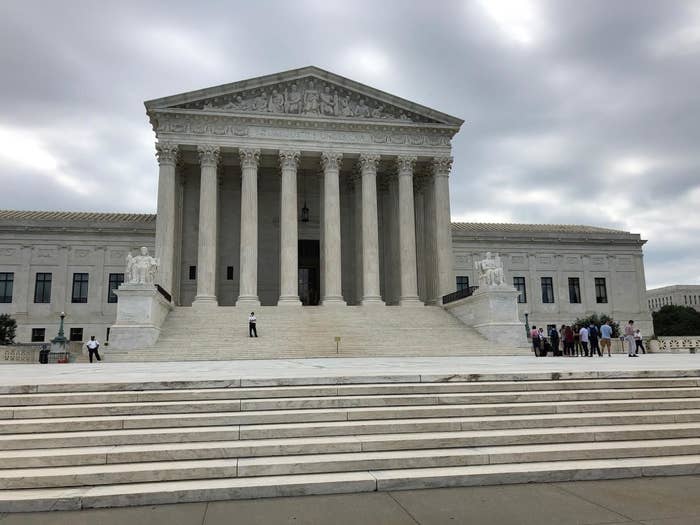
The Supreme Court opened the door on Thursday to states collecting sales taxes from businesses — particularly online retailers — with no physical presence in their states.
The decision overruled past court decisions, which required a business to have a physical presence in a state in order for the state to require the business to collect sales taxes on purchases.
In the internet age, however, the rule quickly became anachronistic, a fact acknowledged by Justice Anthony Kennedy in his opinion for the closely divided 5–4 court on Thursday.
Those earlier rulings, Kennedy concluded, were "unsound and incorrect."
Noting that — under the rule — a business with a small warehouse in a state would be required to collect sales taxes on all purchases made within the state and a business with a huge warehouse "just across the border" in another state and a sophisticated website would not, Kennedy concluded, "This distinction simply makes no sense."
In the decision, Kennedy notes that almost every state — 41 states, 2 territories, and DC — asked the court to overturn the prior rule in order to allow sales taxes to require businesses that have a "substantial nexus with," but no physical presence in, the state to collect sales taxes on purchases made in the state.
Although Kennedy acknowledged that the decision didn't address all arguments that could be made as to all state sales tax laws or as to why certain businesses should not be required to collect sales taxes, "their potential to arise in some later case cannot justify retaining this artificial, anachronistic rule that deprives States of vast revenues from major businesses."
Chief Justice John Roberts disagreed with the court's decision, joined by three of his more liberal colleagues: justices Stephen Breyer, Sonia Sotomayor, and Elena Kagan.
Although he wrote that the initial case setting the "physical presence" sales tax requirement was "wrongly decided," he wrote that he would leave the decision to change the rules to Congress due to the fact that, as he put it, "E-commerce has grown into a significant and vibrant part of our national economy against the backdrop of established rules, including the physical-presence rule."
Shares for Wayfair, Amazon, eBay, Etsy, Overstock, and Shopify tanked Thursday morning after the Supreme Court issued the ruling. Amazon shares fell down by just 1% to $1,731.59 and eBay fell 1.16% to $38.56 in morning trading after the ruling. But shares for other e-commerce companies dipped more dramatically. Etsy shares fell 4.5%, to $42.21, Wayfair's shares fell 3.2%, to $112.42 and Overstock shares fell 2.6% to $37.15.
Wayfair said in a statement that while the court's decision will clarify how states will collect sales tax on e-commerce sales, it believes "the court was not the ideal venue for creating this level playing field."
Even as its share price dropped, Wayfair said it does not expect the court's decision to have a noticeable impact on the business because it already collects sales tax on approximately 80% of orders in the US.
But some companies, like eBay and Shopify, noted the potential impacts this could have on online businesses.
“We think this change has the potential to make selling online more difficult for small businesses," Craig Miller, chief product officer at Shopify, told BuzzFeed News in a statement, adding that the platform automatically handles most common sales tax calculations. "Charging, collecting and remitting sales tax is a massive administrative burden and running a business is hard enough.”
If states begin auditing small e-commerce businesses after Thursday's ruling, eBay warned it could lead to "increased litigation across the country to protect small business from unfair burdens." The company called on Congress to develop clear tax rules that exempt small businesses so that they can "take advantage of the Internet to grow and create local jobs."
Overstock.com executive and board member Jonathan Johnson told BuzzFeed News that the company also would like to see Congress implement tax rules, and added that the company is “prepared to comply with any outcome, and the decision will have no appreciable impact on our business.”
Etsy CEO Josh Silverman said the court's ruling "opens the door" for Congress to find a tax solution for "microbusinesses" like the ones that operate on its marketplace.“While today’s decision is not the one for which we advocated, the Supreme Court did acknowledge the important difference between big internet retailers and the creative entrepreneurs on our platform," he said. "We urge Congress to thoughtfully consider today’s decision and to act swiftly and in the best interest of the microbusinesses they represent.”
Amazon declined to comment on the ruling.


